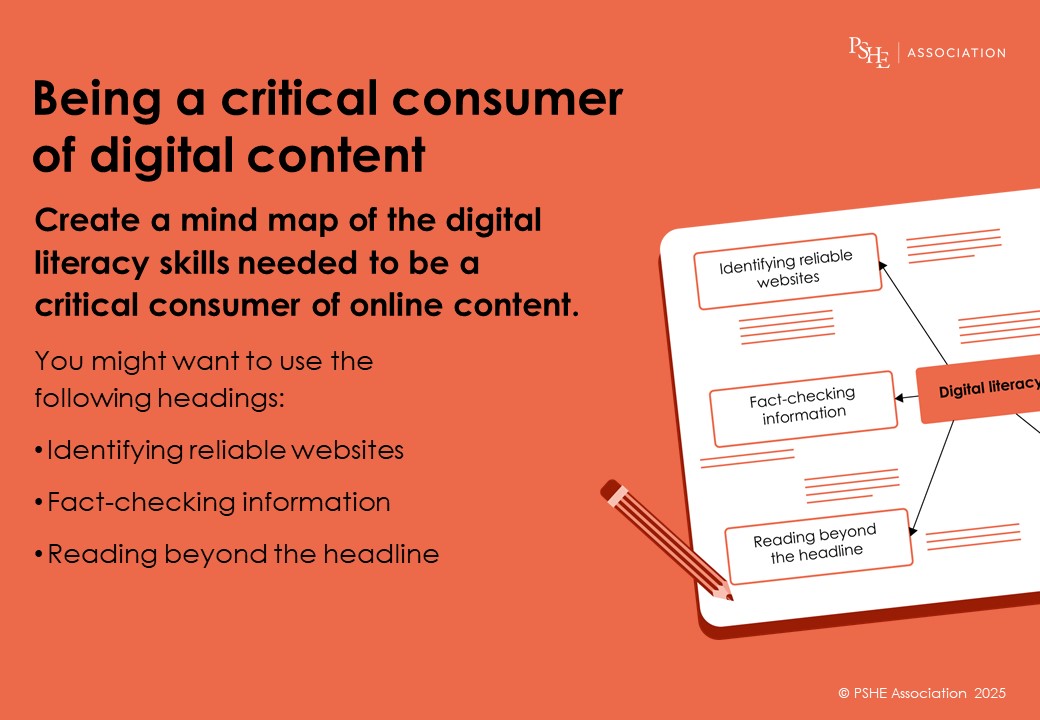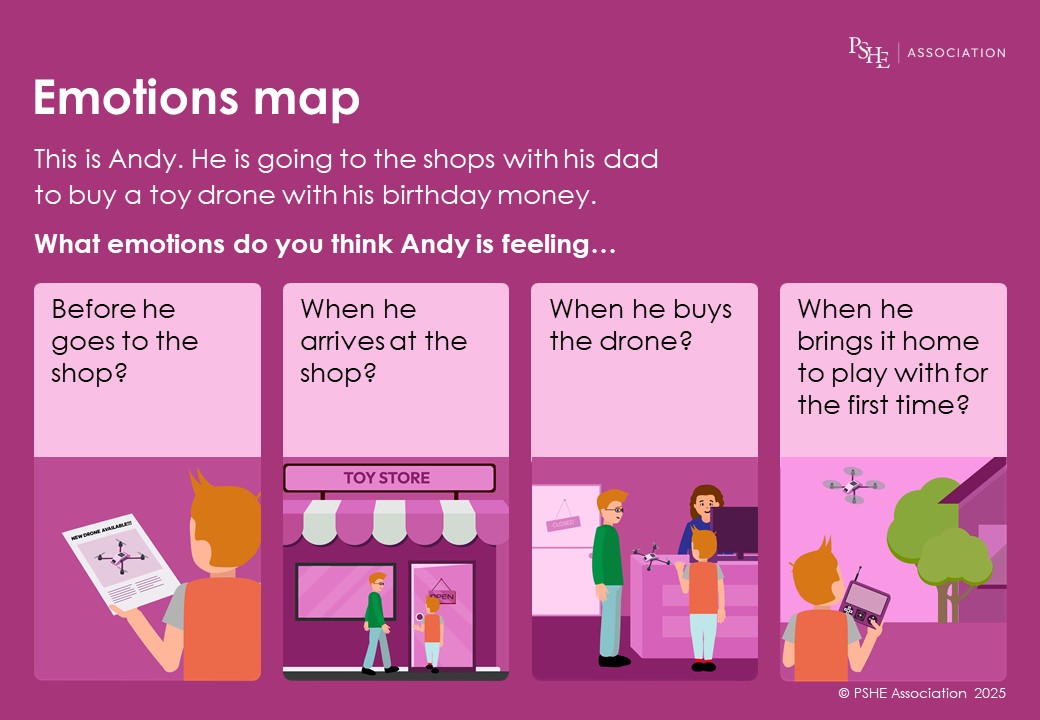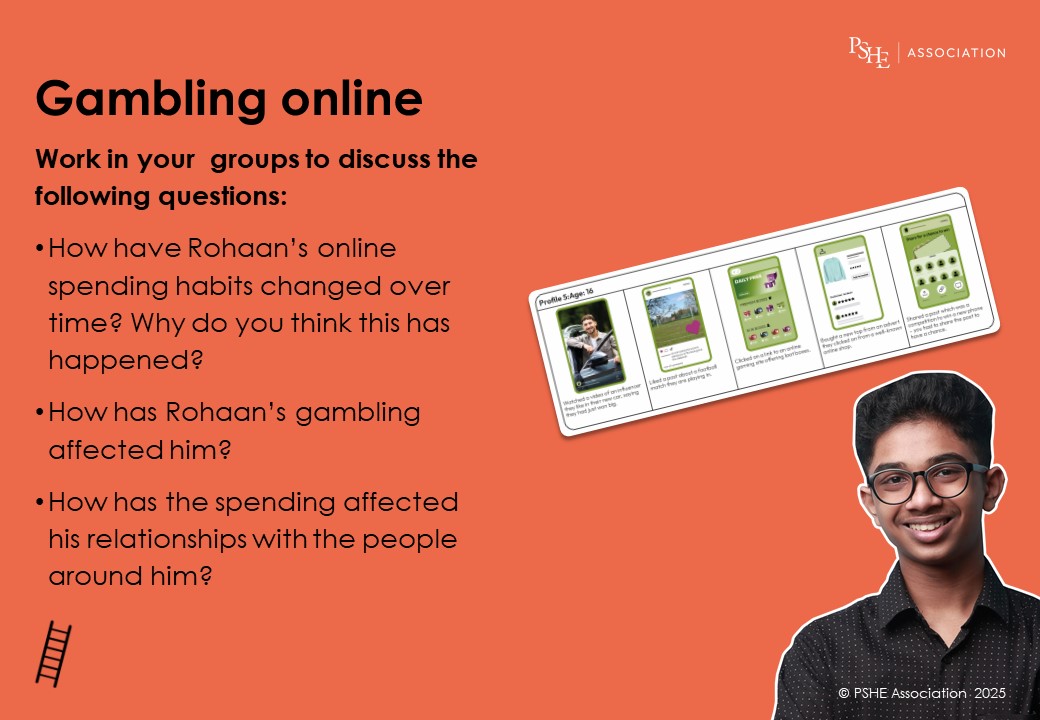Online, at risk and out of pocket: protecting a generation of children from financial harm
By Jonathan Baggaley, Chief Executive, the PSHE Association
New PSHE education materials and training from the PSHE Association will help protect a generation of children suffering the costs of going online – from scams to fraud, exploitation to extortion.
The rise of digital technologies has changed children’s relationship to money and finance and exposed them to risks of growing complexity and impact. An increasingly frictionless online economy has many benefits but also makes it easier than ever to lose money, and risk financial harm. For example, Cifas fraud-risk data shows an alarming increase in young people being victims of scams and identity fraud, and nearly a quarter of money mules are aged under 21.
Exposure to scams, fraud, and other harms not only hits children and parents in their pockets, but creates safeguarding and health concerns in the real world. Money is behind many of the online harms children face, including toxic influences and influencers pedalling a mixture of misogyny and get-rich-quick advice.
This all has a profound impact on attitudes and behaviours, yet the response to-date has been playing catch-up – leaving children exposed, and parents in fear. Six in 10 parents are concerned about child financial harms, according to a Parent Zone report. There are few protections in place for children, and no incentive for online platforms to devise any.

What do we do about it?
This is why the Child Financial Harms programme is so important –– bringing together organisations with expertise in both researching the nature of the problem, and arriving at innovative yet practical solutions through preventative education.
There is clear evidence that personal financial education is ‘effective and efficient’ when taught well. With the right tools and training to hand, this education can prepare and protect thousands nationally, with immediate and life-long benefits to children, parents and society. And the school system allows this education to be delivered at scale.
We are therefore delighted to launch a suite of evidence-based PSHE education lesson materials and on-demand training for teachers and schools, produced by our subject specialists at the PSHE Association.
Child financial harms PSHE lessons and training
This new, free-to-access support package of resources and on-demand training is informed by best practice in PSHE education and research into the pros and cons of current approaches. We also spoke to teachers about their main priorities and concerns, which included a desire to increase their own understanding of this complex landscape.
With this in mind, the package includes teacher guidance on how to teach about financial harms safely and effectively, while linking to other relevant PSHE areas. It also includes a handy explainer of current trends and terminology as well as sources of further support.

Lesson plans are available from the beginning of primary education then build in complexity as students progress to secondary school and post-16/key stage 5, including dedicated materials for pupils with SEND.
- Primary lessons include a focus on understanding the fundamentals of what influences our spending decisions and how spending money online can affect mental health and wellbeing.
- Secondary lessons include lessons that will help students to identify, assess and minimise financial harms posed by phone use and different online contexts, including how the internet can amplify risks relating to money, data and privacy. Other key stage 3 lessons explore how gaming, social media, algorithms, advertising and peer influence can all increase pressure to spend.
- At key stage 4, lessons dig deeper into the complexities of making and spending money online – exploring the rights and risks around cryptocurrencies, as well as the difference between controlled and uncontrolled spending, including on gambling. Other lessons will help young people recognise, avoid and challenge financial exploitation and seek help if necessary.
- The second of two key stage 5/post-16 lessons explores the overlap with PSHE content on relationships, by helping students to identify signs of manipulation, persuasion and abuse in online relationships that could lead to financial exploitation or extortion.
In addition to this, free on-demand training for teachers includes practical steps for embedding learning on financial harms within their PSHE curricula.
Click here to explore the free resources and on-demand training

Making sure all children, in all schools, benefit
PSHE (personal, social, health and economic) education is the school curriculum subject in England dedicated to supporting children’s health, wellbeing, financial capability and readiness for life, and work.
A coherent, well-sequenced PSHE curriculum recognises the overlap and interplay between personal economic wellbeing and other PSHE areas from digital literacy to mental health, online safety to safe relationships. PSHE education is therefore uniquely suited to exploring the personal impact of modern financial risks, and how to recognise and avoid them.
This new Child Financial Harms support package will reach thousands of children, but only the government can help guarantee that all children benefit.
As it stands, PSHE education includes compulsory content on relationships, health and sex education (RSHE), but financial education and careers content remains compulsory in independent schools only.
This is despite UCL study findings that financial skills of 15-year-olds from socio-economically disadvantaged backgrounds are four years behind those from advantaged backgrounds, and that they are less likely to learn about money in school or discuss it with their parents.
Section 35 of the Children and Social Work Act includes a power that would allow the Education Secretary to guarantee that all children, in all schools benefit from personal financial education through PSHE, and without the need for further legislation.
Our hope is that by highlighting the extent and nature of the issue, and presenting practical solutions, we can convince the Education Secretary to take this crucial step towards protecting every child against financial harms.
The PSHE Association is the official body and charity for PSHE education, supporting a network of 40,000 teachers and schools through guidance, resources, training and advice, while working nationally to raise the status and profile of the subject: www.pshe-association.org.uk

